Russia doping: New Wada report reveals obstructions to testing
- Published
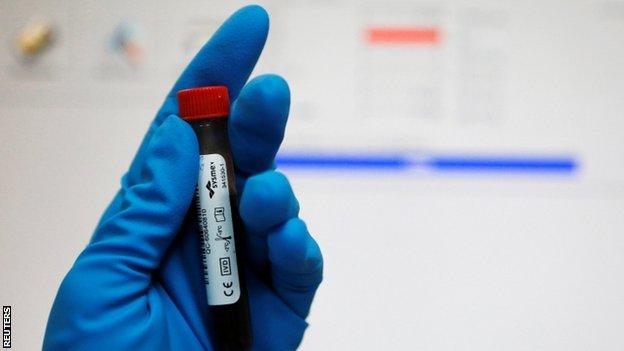
Russian athletes have been banned from competing in international competitions since November 2015
Anti-doping officials in Russia are being stopped from testing athletes and are also being threatened by security services, says a new report.
The World Anti-Doping Agency (Wada) made its latest claims two days before Russia finds out whether it can send athletes to the 2016 Rio Olympics.
They were banned from international competition after Wada accused Russia of state-sponsored doping.
Athletics chiefs meet on Friday to decide whether to lift the ban.
What does the Wada report say?
It says that:
73 of 455 tests on athletes could not be collected;
736 tests were declined or cancelled;
23 tests were missed, which the report says is a "significant amount";
and 52 findings were adverse.
The report details the lengths athletes from different sports allegedly went to, both to avoid tests and fool doping control officers (DCOs).
It says one athlete was seen running away from the mixed zone after an event, while another left the stadium during a race and could not be located.
Wada also highlighted the case of an athlete who, it says, used a container - "presumably containing clean urine" - that had been inserted inside her.
When she tried to use the container, it leaked onto the floor.
The athlete is alleged to have tried to bribe the DCO before providing a sample that subsequently returned an adverse finding.
The report also says that:
DCOs have been intimidated when accessing military cities, with armed federal security agents threatening them with expulsion from the country;
Wada-accredited laboratories have reported that sample transportation packages have been opened by Russian customs, suggesting interference by officials;
And national championships for Olympic sports, including Olympic qualifiers, have been held in cities with restricted access due to ongoing civil conflicts, resulting in service providers declining test requests.
As a result, tests were not carried out at the national weightlifting and national Greco-Roman wrestling championships.
In some cases, testers were not told where an event was taking place.
"What really comes through, when you read through it page by page by page, is the number of occasions when there was simply no co-operation given," former Wada president Dick Pound told the BBC World Service.
Why are Russian athletes banned?
The International Association of Athletics Federations (IAAF) voted to suspend Russia's athletics federation on 13 November after an independent Wada report alleged "state-sponsored doping".
The report was commissioned to investigate claims made in a documentary shown by German broadcaster ARD in 2014.
The programme alleged widespread doping in Russian athletics, claiming as many as 99% of athletes had cheated.
The claims were made by whistleblowers, among them Vitaly Stepanov, a former Russian anti-doping official, and his wife Yulia, a former 800m runner who was banned for doping.
Russian athletes, including former London Marathon winner Liliya Shobukhova, also admitted to taking drugs and observing corruption.
The Wada report found evidence of state involvement, as well as evidence that samples had been destroyed, doping controls had been interfered and bribes had been paid to conceal positive tests.
Dan Roan reports from the discredited Moscow anti-doping laboratory
What happens next?
The IAAF meets on Friday in Vienna to discuss what Russian authorities have done to tackle doping and whether its athletes should compete in Rio.
Russian sports minister Vitaly Mutko said the country could take legal action if its athletics federation was not reinstated, Interfax news agency has reported.
"It is a big and an important message whatever is decided," said Pound.
"If they are held to be excluded, that's a message. If they are allowed to come back in, there is going to be another message that all of the sporting authorities are going to have to deal with."
Pound said a ban on Russian athletes competing in the Olympics would be extremely difficult for the Russian government to explain to its citizens.
"You can explain all sorts of economic sanctions and political sanctions and what not if you are the state," he said.
"But it is very hard to explain to a country that really enjoys its sport and likes to watch it why it is that nobody will play with you."
Meanwhile, Russian Olympic medallists and world champions have appealed to the head of the International Olympic Committee to let athletes with no history of doping to compete at the Rio Games.
"The fraud of dishonest people should not jeopardise the career of innocent fellow athletes," said 13 sports stars in a letter to Thomas Bach.
The 13 include Alexander Popov, a four-time Olympic champion swimmer, and judo champion Tagir Khaibulaev.
The Olympic athletics programme begins in Brazil on 12 August.
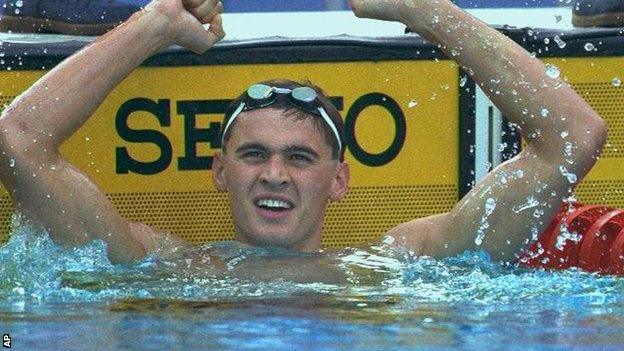
Russian Alexander Popov won four freestyle swimming Olympic golds
- Published26 November 2015
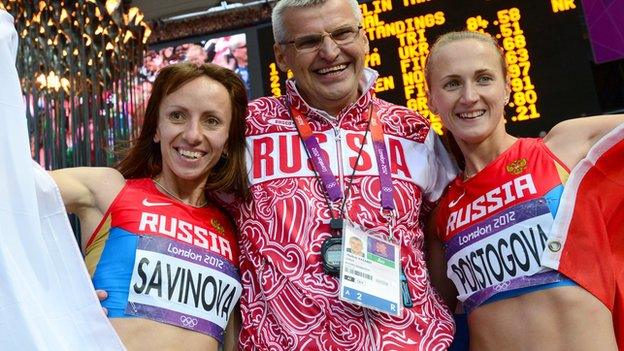
- Published9 June 2016
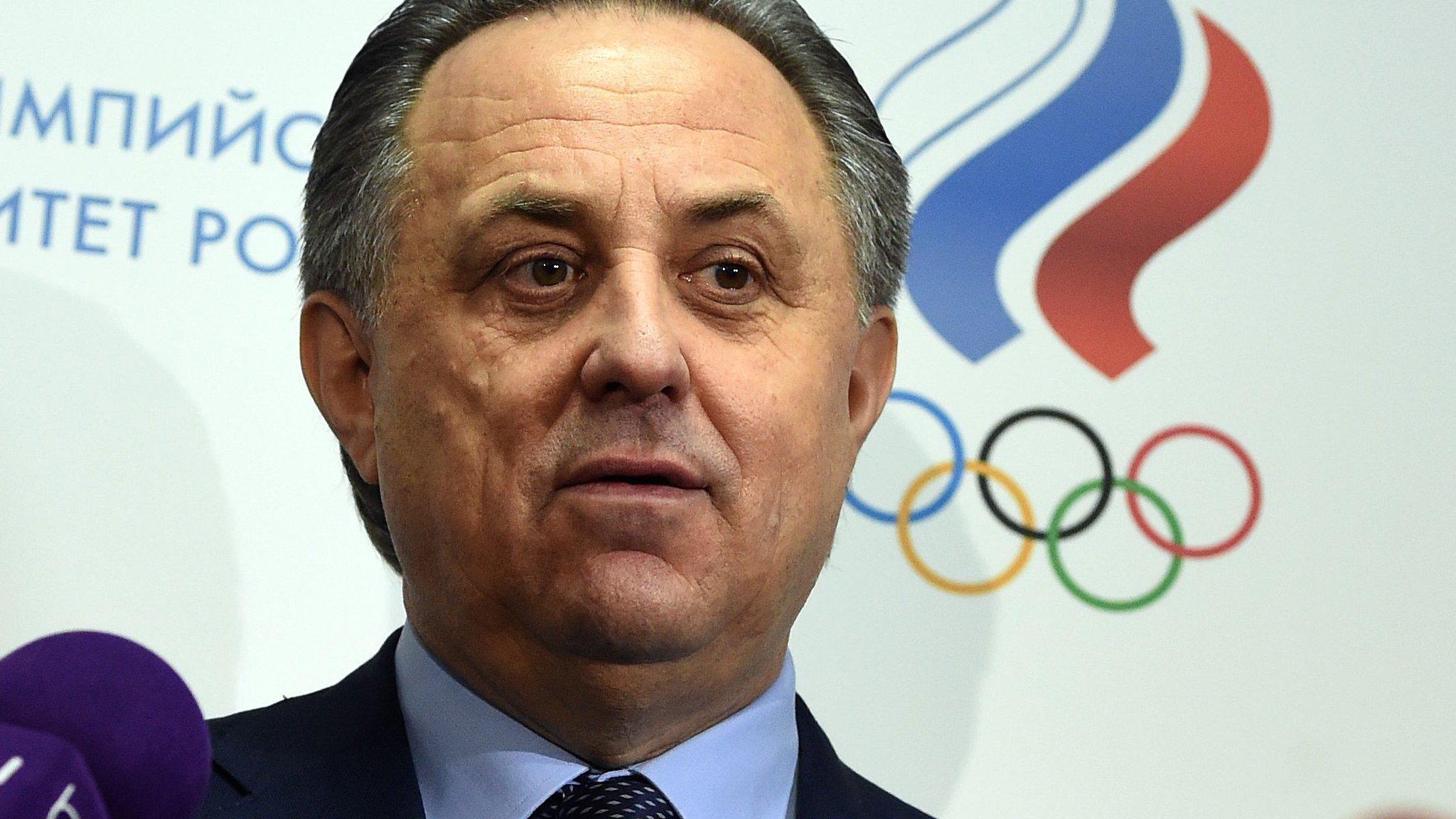
- Published3 March 2018
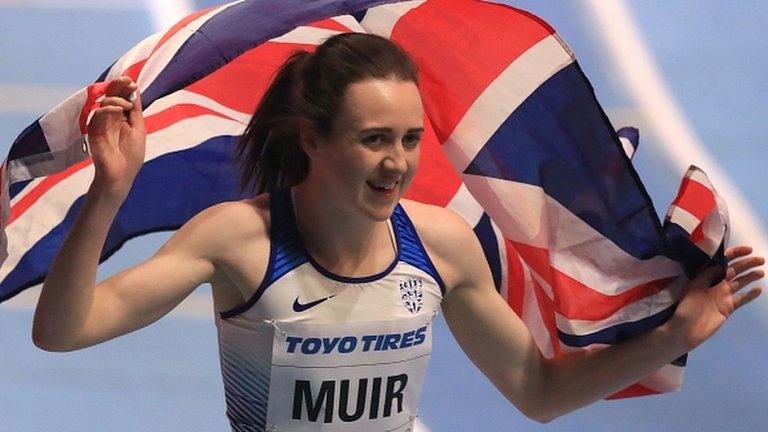
- Published8 February 2019
